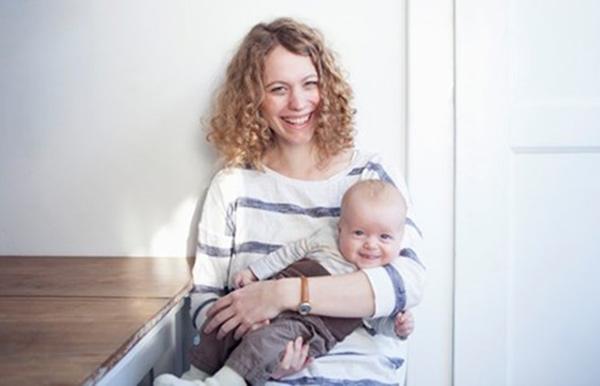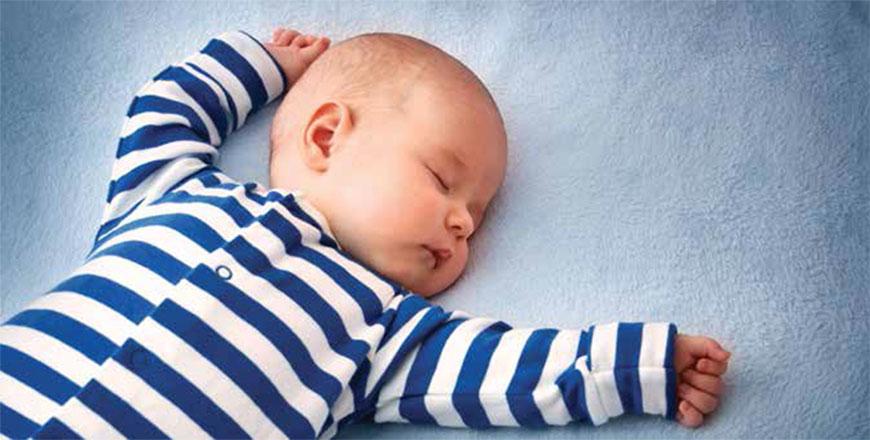You are here
10 things that have changed since your mom had a baby
By Chicago Tribune (TNS) - Oct 29,2018 - Last updated at Oct 29,2018

AFP photo
Being a new parent, people will tell you, is overwhelming. A new baby does not come with instructions. While frantic Googling is always an option, many turn to an even more comprehensive source of knowledge: their own mothers.
In those first days, weeks and months, new grandmothers (and grandfathers) can serve as resources in what feels like a prolonged guessing game of “What’s upsetting my baby?” But while they are often expert diaper changers and baby whisperers, the trouble with relying solely on mom’s knowledge is that a lot may have changed since she had babies of her own.
“The reason we have all the recommendations for babies is we can study them,” said Dr Renee F. Slade, a paediatrician at Rush University Medical Centre. “If there are only a few patients of a rare disease, it makes it hard to conduct research. But with babies, there are thousands of them born every day across the country, so we’re always learning, and best practices are always changing.”
Dr Adia George, a paediatrician at Advocate Illinois Masonic Medical Centre, said she often fields questions about old wives’ tales that are not based in research. For example, some moms or dads put coins on their babies’ umbilical cords to prevent hernias — a practice that is not medically necessary or effective. But George said that there is nothing wrong with certain things as long as they do not harm the baby.
“Typically, the type of advice that I give families is just advice. There aren’t really hard rules because everything doesn’t apply to every infant and every infant is different,” George said. “What grandmothers have done isn’t necessarily wrong, but it might be that what they’ve done hasn’t been proven to show any benefit, which is why we don’t recommend it.”
So what has changed in the last few decades since your mom had a baby?
1. Car seats stay rear facing for longer.
Since 2011, the American Academy of Paediatrics has advised keeping car seats rear facing until the child is two years old, instead of the previous milestone at 1. “Facing forward, there’s more stress on the neck when the car lurches forward in an accident,” Slade said. “So rear facing helps prevent more serious neck injuries.
2. A safe sleep environment is important.
While the “Back to Sleep” campaign started in 1994 to raise awareness of the importance of putting infants to sleep on their backs, Slade said these days, there is added emphasis on a safe sleep environment: no pillows, blankets, stuffed animals or bumpers in cribs. Additionally, the drop-side crib has been banned in the US since 2011.
3. No alcohol on the umbilical cord.
While parents were once instructed to pour alcohol on the umbilical cord to help it fall out, studies show that keeping the cord dry is better for healing. “While the umbilical cord is still attached, it’s recommended for babies to have a sponge bath only,” said George, who added that babies do not need to be bathed every day, but every two to three days.
4. No baby powder.
The AAP recommends against using baby powder. “No matter how careful you are with it, it gets up in the air and the baby can inhale it, which opens them up to respiratory problems and infections,” Slade said.
5. No water until six months.
“It’s no longer recommended for infants to have water until they’re starting solid food,” George said. “A newborn should have only breast milk or formula.”
6. A baby should not drink rice cereal.
Some mothers swear by adding a little rice cereal to a baby’s formula or breast milk to get them to sleep longer, but Slade said that practice of adding extra calories to liquid creates a higher risk of obesity. “Babies probably do sleep longer with the cereal, but there is a reason they’re waking up in the middle of the night,” she said. “They still need that nutrition when they’re less than six months old.”
7. Moms room with babies in the hospital.
It used to be common practice for a maternity ward to keep newborns in a nursery, but now babies typically stay with the mothers in a bassinet. “That way the mom is learning the baby’s cues right away and bonding,” Slade said. “At first, when we dropped the nursery, there were a lot of customer service issues and complaints from the moms that they couldn’t get a nap. But I never hear complaints now because rooming in is more of the expectation.”
8. Breastfeeding is more emphasised and supported.
The health benefits of breastfeeding for both mom and baby have been widely researched. The AAP recommends breastfeeding for at least the first year of a baby’s life if possible, and Slade said she has seen hospitals support this with more lactation consultants and lactation training for nurses. Under the Affordable Care Act, resources like breast pumps are also often covered by insurance.
9. The first paediatrician appointment is earlier.
Slade said it is a relatively new practice to have the first paediatric appointment just two days after mom and baby leave the hospital. This change came because mothers used to stay at the hospital for up to two weeks, and in that time, the baby was checked for things like jaundice or weight loss. “It’s a super valuable appointment,” she said. “You’re helping the parents when they’re totally overwhelmed and they need someone to answer questions.” Slade added that these days babies undergo a lot more testing before they leave the hospital for things like hearing problems, heart defects and jaundice.
10. Soft soles are better for learning to walk.
Though many mothers have the classic hard white baby bootie that has been passed down through generations, those are not best for a baby’s development. “When babies are learning to walk, we recommend bare feet in the house and a soft shoe with a more flexible sole when they’re outside,” Slade said.
Related Articles
AMMAN — The exclusive breastfeeding rate in Jordan is well below the regional average, according to a statement by the Higher Population Cou
Babies who consume nothing but breast milk for their first three months of life may have healthier cholesterol levels by adolescence than in
It’s never too early or too late to foster good sleep habits in your baby and ultimately help yourself get some much needed rest as well!
















